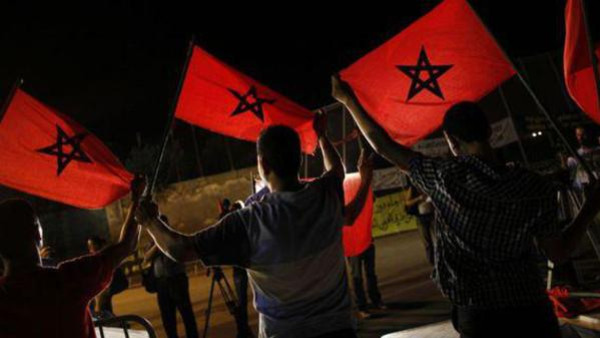Today, Tuesday 22 September, the Cairo Institute for Human Rights Studies (CIHRS), jointly with the Moroccan Association for Human Rights, Frontline Defenders, the Committee to Protect Journalists, and the Euro-Mediterranean Human rights Network, delivered an oral intervention addressing the 30th Session of the UN Human Rights Council (HRC) about rising impediments against independent civil society groups in Morocco.
The organizations expressed their concern regarding the increasing restrictions against a number of independent human rights groups and defenders, and journalists in Morocco emphasizing that the patterns of restrictions include ongoing banning of NGO activities, administrative impediments on the legal registration of NGOs, and a range of other rights violations against a number of human rights defenders.
The intervention stated that 37 out of 97 branches of the Moroccan Association for Human Rights (AMDH) across the country are facing administrative obstacles to renewing their legal registration. In addition since July 2014, AMDH alone has seen 93 of its activities banned by authorities.
The statement affirmed as well that rights activists have also been subjected to travel bans, judicial harassment and intimidation by security forces mentioning that last week, the President of the human rights association Freedom Now, Maati Munjib, was summoned for investigation over his human rights work, where he was repeatedly accused of defamation, spreading false news and harming Morocco’s image. While he has not been presented with formal charges, however a travel ban has imposed against him.
In addition, on 8 September 2015, the vice president of the Moroccan Association for Digital Rights (ADN), Karima Nader was interrogated in relation to a report prepared by Privacy International on online surveillance in Morocco. She was presented with very serious charges that, if indicted, would amount to several years in prison. The charges include “false denunciations”, “depreciating the efforts of the state”, and “insulting authorities.”
Also, on 25 August 2015, human rights defender Samad Iach, member of the Moroccan Association for Investigative Journalism, was banned from travelling by Moroccan security forces at the Airport. Iach was summoned for interrogation earlier on 15 August 2015 and questioned about his work as a journalist and human rights defender. He was charged with “undermining the allegiance of citizens with respect to constitutional institutions”, “attempting to establish fitna (unrest),” and “working for foreign agendas.” He was subsequently released.
The organizations called upon the Moroccan government to halt undue restrictions imposed on civil society and to cease all harassment of human rights defenders in accordance with the Moroccan constitution and Morocco’s human rights obligations. Highlighting the crucial role of civil society in the democratization process, the statement concluded that “an empowered and free independent civil society is one of the pillars of democratic governance and a key actor in supporting stability and progress in the country, and is indispensable to ensure the success of Morocco’s democratic transition.”
Share this Post

